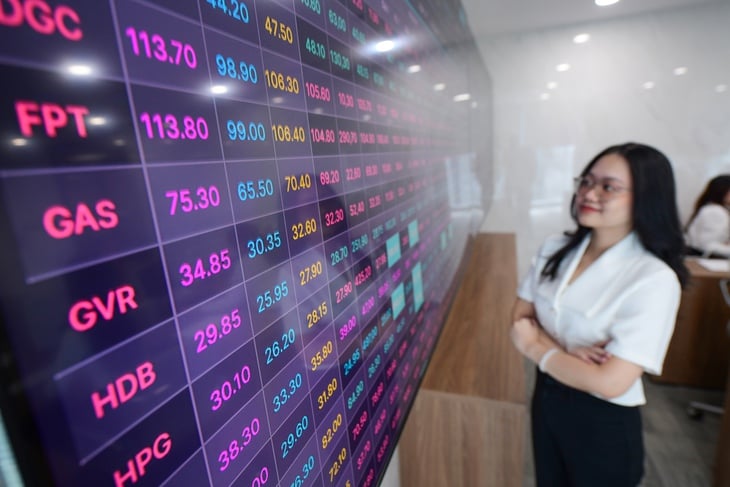
During a stock trading session - Photo: QUANG DINH
If upgraded, Vietnam's stocks could attract more international capital flows, but experts stress this is just the starting point.
To turn opportunities into long-term capital flows, Vietnam still needs to promote reforms in information transparency, standardize financial reporting, increase liquidity, expand "room" for foreign investors and perfect mechanisms to ensure fairness.
Prepare before the assessment
In its latest update, FTSE acknowledged that Vietnam now meets seven of the nine necessary criteria. Significant progress in the remaining two criteria has strengthened the case for upgrading. However, it noted that FTSE will consult with investors and securities companies before making a decision.
Notably, on September 12, the Prime Minister signed the Project to upgrade the Vietnamese stock market, marking an important milestone. Minister of Finance Nguyen Van Thang affirmed to Reuters in London (An) that he was "quite confident" about the prospect of upgrading when "the basic and fundamental criteria have been met".
Commenting with Tuoi Tre , Mr. Nguyen Viet Cuong - Vice Chairman of the Board of Directors of KAFI Securities - said that the process from when FTSE or MSCI puts a market on the observation list until it is officially upgraded takes a relatively long time.
"It is entirely possible that a market can meet all the criteria on scale and liquidity but still not be upgraded, if the barriers regarding "real experience" of foreign investors have not been resolved," the deputy general director of a securities company told Tuoi Tre.
Regarding the non-prefunding mechanism (no need to deposit all money in advance when trading) to improve the experience of foreign investors, the deputy general director said: "The mechanism already exists and large securities companies can operate it, but implementation is still cautious due to operational risks when opening rooms or serving large customers."
Additionally, according to HSBC, Vietnam has made significant progress in meeting the requirements but foreign ownership limits (FOL) remain a concern.
Accordingly, Vietnam still has limits in some sectors such as banking, aviation and telecommunications. This limit is usually up to 50%, but the foreign ownership limit in commercial banks is only 30%.
This means that once a foreign investor has bought 50% of a company, they can only trade with other foreign investors. Foreign prices will be set, which are different to domestic prices. While this may not be a requirement for FTSE reclassification, it could be a concern for investors.
There are still many "knots" that need to be untied.
Ms. Tran Thi Khanh Hien - Director of Research at MB Securities (MBS) - said that the recent upgrading process has shown positive signs, but even when upgraded, we should not expect too much from the "title" but should focus on the substance.
Being classified as a second-tier emerging market does not mean that foreign capital will flow into Vietnam in droves. To attract sustainable capital flows, Ms. Hien emphasized that many factors must be reformed more synchronously: information transparency, standardization of financial reports, investors can withdraw capital easily when needed...
Furthermore, MSCI is currently the most influential organization in market classification, and the size of assets linked to its indexes is also much larger than that of FTSE Russell.
However, Vietnam is not currently on MSCI's watchlist for possible upgrade to emerging market (EM).
To be included in this list, Vietnam must meet MSCI's assessment criteria, which are more stringent than FTSE's. MSCI uses an assessment framework of 18 factors, while FTSE has only 9 criteria.
MSCI’s Global Market Accessibility Review 2024 found that Vietnam still falls short of expectations in nine areas. One of these is foreign ownership limits. Other issues include a lack of detailed English-language disclosure, the lack of an offshore foreign exchange market, restrictions on the domestic foreign exchange market, pre-funding of transactions, and restrictions on off-market transfers.
According to HSBC, in the most optimistic scenario, even if MSCI puts Vietnam on the watch list in the June 2026 review, the official upgrade is unlikely to happen before 2028.
Upgraded then have to worry about "downgrading"
Regarding the upcoming FTSE classification period, Mr. Dong Thanh Tuan - analyst of Mirae Asset Securities (Vietnam) - emphasized that the foreign capital flow following the upgrade decision is a long-term factor. Because the nature of the large capital scale will require a suitable disbursement roadmap while the buying and selling activities of foreign investors at the present time are still relatively cautious in disbursement activities before the upgrade.
Mr. Nguyen Viet Cuong noted that the longer story is that upgrading will also have downgrading. In total, FTSE and MSCI have had 5 downgrades in the past 10 years. Although the reasons given are quite diverse, from liquidity to foreign exchange restrictions or market instability, we can see the biggest common point is that the ability to invest in these markets has been greatly reduced.
Mr. Nguyen Son - Chairman of the Board of Members of the Vietnam Securities Depository and Clearing Corporation (VSDC) - also emphasized that we strive to upgrade to attract foreign investors. But the more important thing is to maintain market stability. Upgrading and then downgrading is normal. Many countries, after being upgraded, have seen capital flows increase rapidly, but they cannot maintain this, leading to being downgraded again. Therefore, maintaining stability after upgrading is key.
Missed appointments
In September 2018, FTSE Russell first put Vietnam on the watch list for upgrading from a frontier market to a secondary emerging market. Over the past few years, this expectation has repeatedly "failed", leaving investors disappointed.
In the most recent classification, Vietnam did not meet the criteria on payment mechanism, so it continued to be "failed". By September this year, when the VN-Index had a strong correction and foreign investors continued to sell net, rumors of "missed appointment" once again spread on forums and groups.
Mr. Nguyen Viet Cuong of KAFI said that although the Vietnamese market has had a very strong increase since April, the valuation level is still lower than other emerging markets. According to preliminary calculations, Vietnam still has about 10-15% of room before the market valuation reaches the average threshold of emerging markets, so the door to increase from the upgrade story is still very open.
Not to mention, compared to typical emerging markets in the ASEAN region, Vietnam's valuation level is still lower. The P/E of VN-Index is currently at about 14.6 times, while Thailand and Malaysia fluctuate between 16.5-17 times. If VN-Index moves up to the same level as these markets, there will be room for growth of about 13-15%.
"The adjustment, if any, will help to price the market at a more attractive level, creating opportunities to attract new capital flows and a foundation for the next phase of sustainable growth," said the KAFI vice president.
Source: https://tuoitre.vn/sot-ruot-nang-hang-thi-truong-chung-khoan-20250919232622779.htm






![[Photo] Prime Minister Pham Minh Chinh attends the groundbreaking ceremony of two key projects in Hai Phong city](https://vphoto.vietnam.vn/thumb/1200x675/vietnam/resource/IMAGE/2025/9/27/6adba56d5d94403093a074ac6496ec9d)

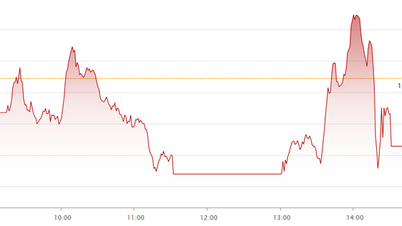






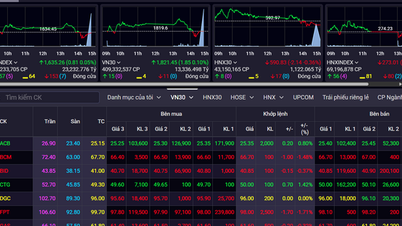
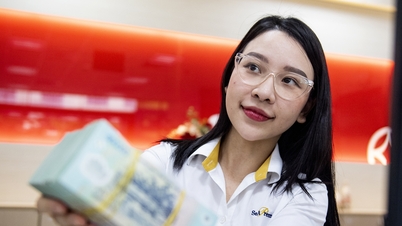

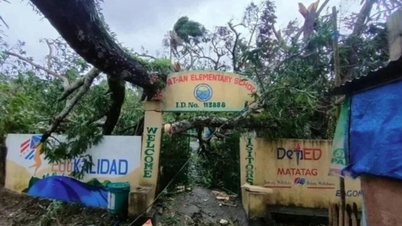

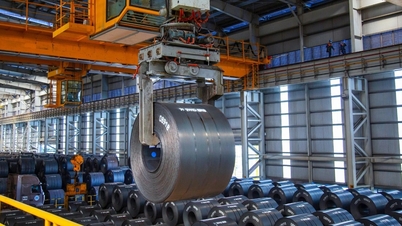

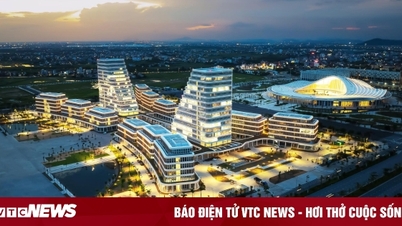

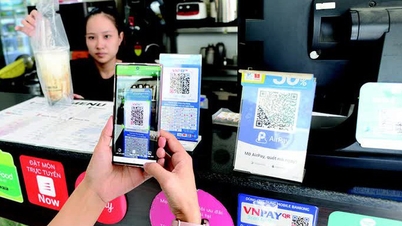





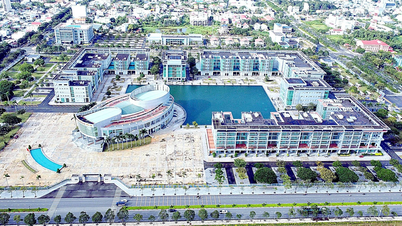

























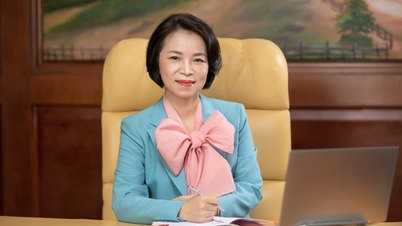




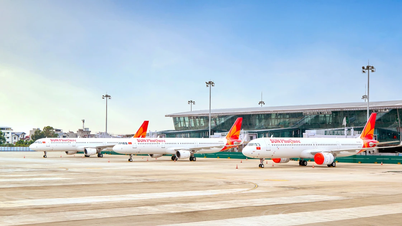




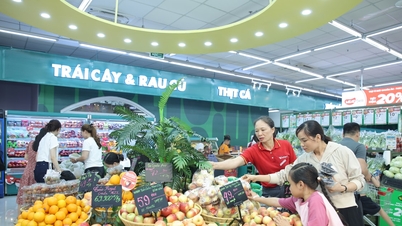












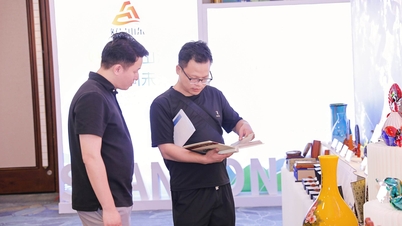


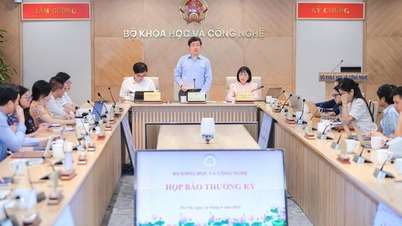






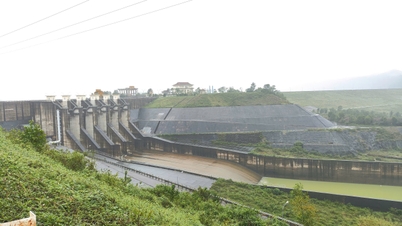



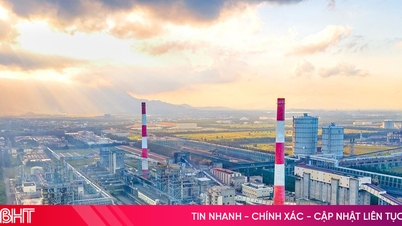















Comment (0)